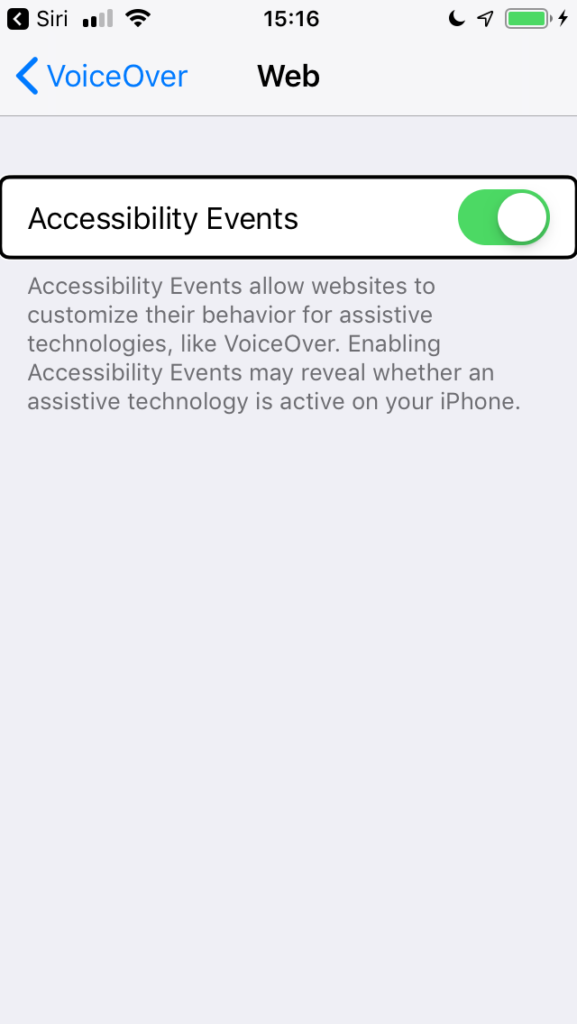Format: Status

Apple is now apparently saying that its Accessibility Events feature, (you know, the one that “may reveal whether an assistive technology is active on your iPhone”), is not enabled by default. Like hell it’s not enabled by default. It sure was enabled when I installed the iOS 12.2 update last weekend on my iPhone 8+). I specifically went in to general/accessibility/VoiceOver to check, and had to turn the feature off. This note includes a screenshot of my just-updated iPhone 5S, and as sure as the sun is shining, the accessibility events feature was turned on. I have a severe allergy to BS, and Apple doesn’t get to bypass the BSometer just because it has a history of caring a lot about accessibility. Websites should be designed and developed from the beginning with accessibility in mind. The guidelines are already out there and have been out there and freely available, complete with extensive documentation so that they can be understood, for over twenty years. There’s a metric ton of freely available information from the accessibility community of practice on every aspect of those guidelines, all over the internet, for basically as long as the guidelines themselves have existed. Assistive technology tracking has been covered already by this community of practice, and we’re probably all tired of it. For Apple to lie about something as simple as whether the feature is on by default indicates at least some corporate squeamishness around implementing it in the first place, and the best thing they could do at this point is to remove it.